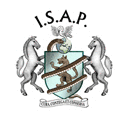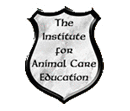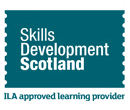
The Animal Care Welfare and Husbandry Diploma programme has been developed for those who want to know more about the care of particular species of domestic pets and are planning to work in a pet store or animal rescue centre. It will also be a very useful introduction to further study for those wishing to embark on a career as an animal care assistant.It is a very comprehensive programme that is unrivalled in the sector.Modules 1 and 2 are compulsory. Four from the remaining 6 must also be completed. Each module will contain details of the animals" husbandry including health issues, vaccinations, reproduction, any grooming, nail care and dental care that might be needed along with suitable accommodation and diet.
Course Modules
1. Dog Care
- How to carry out health checks on the dog
- Canine eye disorders
- Canine urinary disorders
- Disorders of the skin and coat
- Disorders of the bones, muscles and joints
- Canine nutrition
- Nutritional disorders
- External parasites
- Internal parasites
- Keeping the dog clean and tidy
2. Cat Care
- How to handle a cat
- General cat equipment
- Cat identity
- Toys and exercise
- Vaccinations
- Feline infectious diseases
- Feline nutrition
- Keeping the cat clean and tidy
- Feline health checks
- Feline eye disorders
- Feline urinary disorders
- Disorders of the skin and coat
- Disorders of the bones, muscles and joints
- Common nutritional disorders
- Parasites and worming programmes
- Keeping the cat flea free
- Lice, mites and ticks
- The elderly cat
- How to administer medication to the cat
3. Small Mammals Part 1 (Rabbits, Guinea Pigs and Hamsters)
- History
- Rabbits, Guinea Pigs and Hamsters in the wild
- Physical appearance
- Senses
- Life cycle of the rabbit, guinea pig and hamsters
- Different breeds of rabbits, guinea pigs and species of hamster
- Housing
- Exercise
- Companionship
- Natural diet and feeding
- General care including handling, grooming, nail clipping and teeth trimming
- Common Health problems
4. Small Mammals Part 2 (Rats, Mice, Gerbils and Jirds)
- History
- Rats, Mice, Gerbils and Jirds in the wild
- Physical appearance
- Senses
- Life cycle of the Rats, Mice, Gerbils and Jirds
- Different breeds of Rats, Mice, Gerbils and Jirds
- Housing
- Exercise
- Companionship
- Natural diet and feeding
- General care including handling, grooming, nail clipping and teeth trimming
- Common Health problems
5. Exotic Care (Reptiles, Amphibians and Invertebrates)
- History of amphibians
- Amphibian biology
- The tail-less amphibians: Frogs and toads
- The tailed amphibian: Newts and Salamanders
- Limbless and wormlike amphibians: Caecilians
- Housing and Feeding of amphibians
- Reptiles: Snakes, Lizards, Tortoises and Turtles
- Reptile biology
- Reproduction and breeding in captivity
- Health care
- Zoonosis
- How to keep Turtles and Tortoises
- Snake anatomy and physiology
- Caring for the snake: handling, housing and feeding
- Snake health problems
- Commonly kept Lizards
- Caring for the Lizard: housing and feeding
- Invertebrates and arthropods
- Tarantulas: Accommodation, feeding, moulting, sexing and health problems
- The Imperial Scorpion
- Giant Millipedes
- Stick insects: Handling, sexing and breeding
- Molluscs: accommodation, feeding and health problems
6. Fish Care (Tropical and Freshwater)
- Setting up an aquarium
- Fish anatomy and physiology
- Fish health
- Infectious diseases: Viruses and Fungi
- How to diagnosis diseases in fish
- Parasites: Internal and External
- Bacterial fish diseases
- Fungal diseases
- Maintenance of the aquarium including daily checks
- Feeding
7. Horse Care
- Equine health checks
- Pulse, respiration and temperature of the horse
- Signs of poor health
- First Aid
- Infectious diseases
- Viruses and Fungi disease
- Bacterial diseases including Strangles, Tetanus, Botulism and Mud Fever
- Fungal diseases
- Viral diseases including Equine Herpes Virus, Equine Influenza
- Nutritional disorders
- Feeding the horse
- Internal and external parasites
- Caring for the grass kept horse
- Caring for the stabled kept horse
- Grooming and grooming kits
8. Bird Care
- Commonly kept species: Budgerigar, Canaries, etc
- Anatomy and physiology
- Reproduction
- Housing and exercise
- Feeding
- Catching and handling
- Signs of ill health
- Moulting
- Infectious diseases
- Viruses and Fungi
- Internal and external parasites
Study Level 3The study Level relates to the how demanding the course is. 1 is beginner and 5 is HND / Foundation Degree level.
6 Module CourseModules 1 and 2 are compulsory. Four from the remaining 6 must also be completed. Each module will contain details of the animal's husbandry including health issues, vaccinations, reproduction, any grooming, nail care and dental care that might be needed along with suitable accommodation and diet.
- All Compass Education Ltd courses are written by industry
- experts and provided exclusively in the UK by Compass, they are not available
- anywhere else. Courses are unique to Compass and accredited by Ofqual regulated
- Awarding Bodies and/or Industry Professional Bodies as indicated in each course
- description. In common with the overwhelming majority of private educational
- provision in this sector they are not a part of the RQF or SCQF and they do not
- appear on Ofqual's register of qualifications.
Reviews
No reviews were found.



